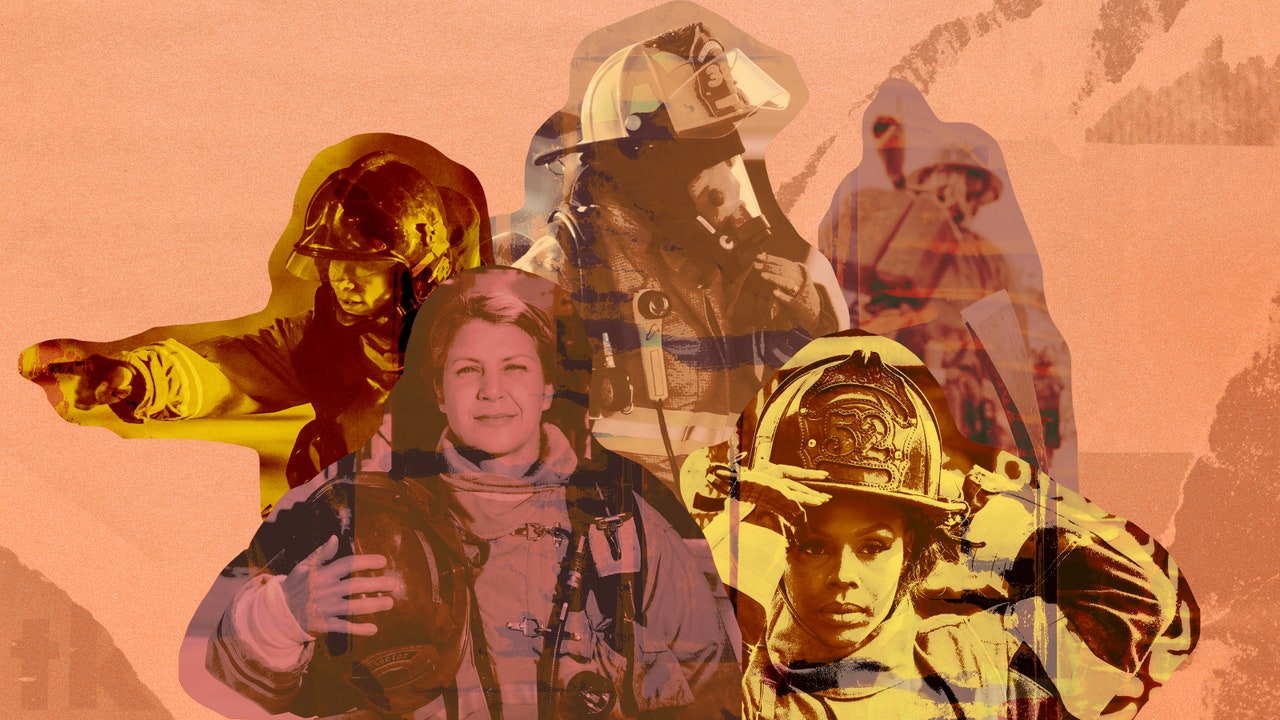Women First Responders Remember 9/11

[ad_1]
When Mary Carouba and I boarded a plane for New York City just weeks after 9/11, it felt dangerous and counterintuitive to be heading toward the scene of a terrorist attack that had killed nearly 3,000 people.
But nowhere in the news had we heard the story of a single female firefighter, police officer, or paramedic. Nor had we seen the face of a single female rescue worker in the coverage. News cameras were trained on male first responders, and the media had uniformly reverted to outdated, gender-specific language such as “policemen, firemen, the brotherhood,” and “our brave guys.”
“Where are the women?” we asked each other. We began watching the news more closely, reading newspapers, buying magazines. We knew that women had to be making noteworthy sacrifices and contributions at Ground Zero. In the rural Northern California firehouse where I volunteered, our crew was 50% women. Mary worked with numerous female police officers from multiple agencies in her job as a Sonoma County social worker.
Furious at reporters and galvanized by their oversight, we were determined to give women their rightful place in the history of 9/11. We boarded a plane in San Francisco, resolved to find and tell the stories of the women at Ground Zero.
Despite having no contacts, no funding, no agents, and having never written a book, we were the perfect team. I had a degree in journalism and had spent my career interviewing people and telling their stories. Because I was also a firefighter and emergency medical technician, I had personal experience as a first responder in the 911 system. I could feel what was happening in New York City right down to my bones.
In addition to being a social worker, Mary was a stand-up comedian and all-around extrovert. In a time before social media, she was constantly on the phone, running down one lead or another, figuring out how to get us around the unfamiliar territory of New York City. We were both native Californians who had never lived anywhere else. I had never even hailed a cab.
One by one, we found them. Each woman we interviewed knew dozens more who had been at Ground Zero. It turned out that there were more than 6,000 female police officers in the NYPD, and another 100 in the Port Authority Police Department. While the FDNY employed only 25 female firefighters, about one-third of New York City’s EMTs and paramedics were women. How could the media have overlooked them?
Most of the women who ended up in our book initially rejected the idea. “I’m no hero,” they said, time and time again. “I was just doing my job.”
But then we reminded them of the absence of female first responders in the coverage of 9/11. “We’re writing this book,” we said, “because we don’t want a whole generation of young women to grow up believing that only men can be strong, brave, and heroic.”
So, it was for future generations of girls and young women that 30 firefighters, police officers, EMTs, paramedics, and other women agreed to tell their stories and have their portraits taken by Oakland, California, photographer Joyce Benna. In the resulting book, Women at Ground Zero: Stories of Courage and Compassion, they tell us in their own words what they saw, felt, and did when they arrived on scene of a tragedy that killed 412 first responders—the deadliest incident for firefighters and police officers in the history of the United States.
Among the deaths at the World Trade Center were three female first responders who died trying to save others: NYPD Police Officer Moira Smith; PAPD Captain Kathy Mazza, and EMT Yamel Merino. Last year, one of the women featured in our book, NYPD detective Jennifer Abramowitz, died of 9/11-rated cancer. Our book is dedicated to them.
[ad_2]
Source link




